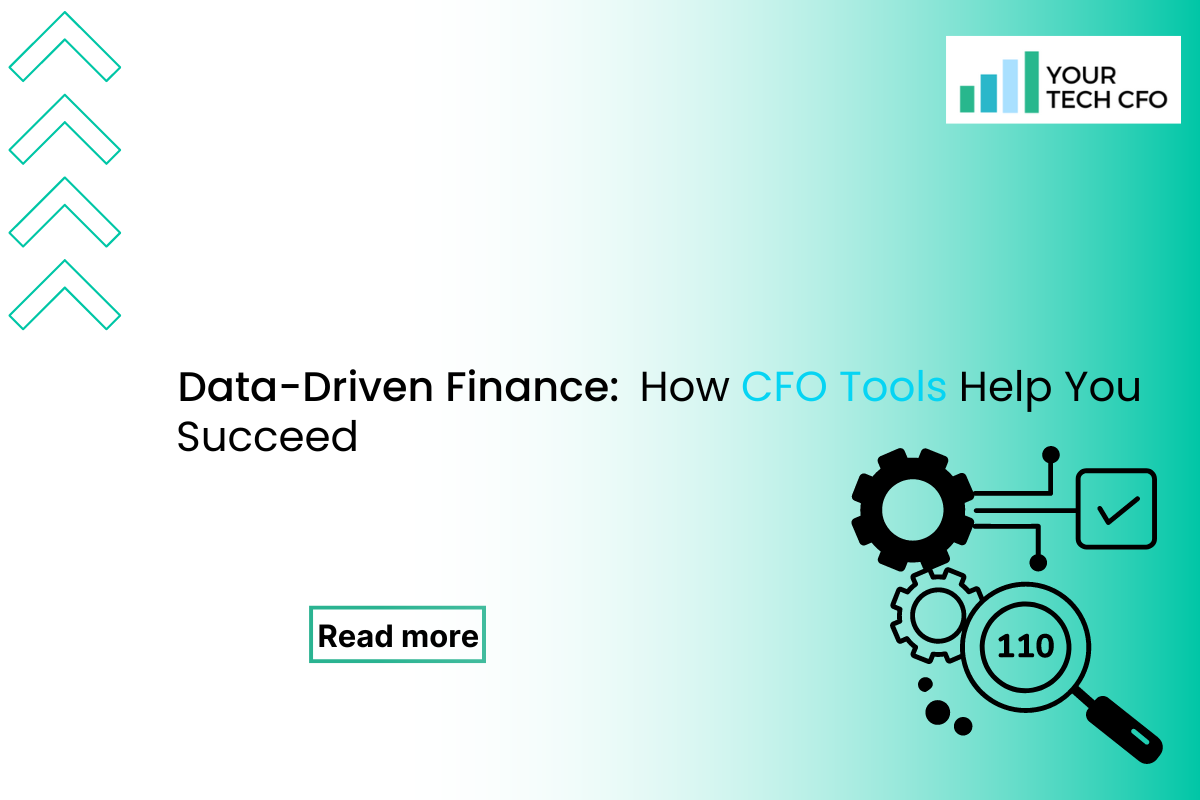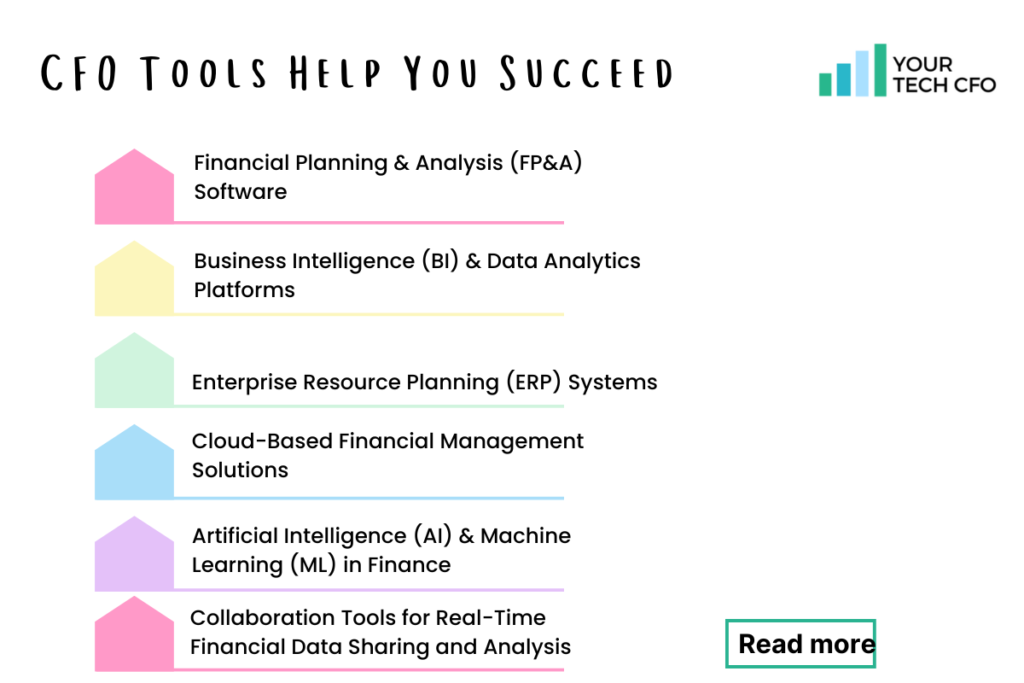
In today’s fast-paced business world, being a CFO is no longer just about crunching numbers. With technology constantly evolving and everyone wanting to make data-driven decisions, CFOs are now expected to be strategic advisors, leading the way with insightful analysis and helping their companies grow. To keep up with this shift, the right tools are essential.

Financial Planning & Analysis (FP&A) Software
Financial Planning & Analysis (FP&A) software has become a game-changer for CFOs, enabling them to streamline budgeting, forecasting, and strategic planning processes. These powerful tools offer a range of features, including:
- Real-time financial modeling and scenario analysis
- Automated data integration from multiple sources
- Collaborative budgeting and planning capabilities
- Advanced reporting and data visualization
Among popular cloud-based FP&A software, the solutions most popular among CFOs are Adaptive Insights (acquired by Workday). Another study revealed that 94% of the users observed great benefits in their company`s budgeting and forecasting due to the usage of FP&A software; that`s why it plays an important role in the contemporary finance function.
Business Intelligence (BI) & Data Analytics Platforms
- Visualize complex data sets through interactive dashboards and reports
- Identify trends, patterns, and outliers in financial data
- Perform advanced financial modeling and predictive analytics
- Facilitate data-driven decision-making across the organization

Some key BI & data analytics tools favroed for financial analysis are Microsoft Power BI, IBM’s Watson Analytics for Tableau, Qlik and more. The emphasis on augmented analytics and AI capabilities in the direction of solutions covered in Gartner’s 2023 Magic Quadrant for Analytics and Business Intelligence Platforms is continuously expanding.
Enterprise Resource Planning (ERP) Systems
- Real-time visibility into financial data and performance metrics
- Streamlined accounting and financial reporting processes
- Integration with other business functions, such as supply chain and human resources
- Enhanced compliance and risk management capabilities
Leading ERP solutions for financial management include Oracle NetSuite, Microsoft Dynamics 365, and SAP S/4HANA. According to a study by Aberdeen Research, organizations with integrated ERP systems experienced a 24% improvement in financial cycle times.
Cloud-Based Financial Management Solutions
Cloud-based financial management solutions offer a highly scalable and flexible alternative to traditional on-premises software. These solutions provide CFOs with:
- Anytime, anywhere access to financial data and applications
- Reduced IT infrastructure and maintenance costs
- Automatic software updates and security patches
- Seamless integration with other cloud-based tools and platforms
Popular cloud-based financial management solutions for CFOs include. A survey by Deloitte revealed that 67% of organizations have adopted cloud-based solutions for finance and accounting functions, highlighting the growing trend towards cloud computing in the finance industry.
Artificial Intelligence (AI) & Machine Learning (ML) in Finance
Artificial Intelligence (AI) and Machine Learning (ML) are revolutionizing the finance industry, enabling CFOs to unlock new levels of efficiency, accuracy, and insights. AI-powered tools offer:
- Advanced financial forecasting and predictive analytics
- Real-time risk management and fraud detection
- Intelligent process automation for financial tasks
Leading AI and ML solutions for financial management include BlackLine’s AI-powered accounting solution, Planful’s AI-driven FP&A platform, and Salesforce’s Einstein Analytics for financial services. According to a study by PWC, 72% of finance leaders believe that AI will be a game-changer for their organization.
Collaboration Tools for Real-Time Financial Data Sharing and Analysis
Effective collaboration is crucial for CFOs to ensure seamless communication and data sharing within their teams and across the organization. Collaboration tools such as:
- Microsoft Teams or Slack for real-time communication and file sharing
- Google Workspace or Office 365 for document collaboration and co-editing
- Zoom or GoToMeeting for video conferencing and virtual meetings
These tools create an environment where CFOs can easily share and analyze financial data in real time to accelerate decision making among different stakeholders. A recently conducted research indicated that firms that implemented collaboration software within workplaces reported higher productivity by 25 percent and had lower project costs by 28 percent.
Conclusion
As the role of the CFO is becoming more involved and unique in today’s fast-paced business environment, it is imperative for the CFO to explore the use of technology in the pursuit of financial excellence for the organization. With FP&A software, Business Intelligence and data analytics tools, ERP solutions, cloud applications, artificial intelligence and machine learning, and collaboration technologies, the CFO can go to another level of the company’s processes’ optimization, data-driven decision-making capabilities, and potential growth.
It’s important to understand that technology is nothing more than an enabler; it’s these solutions and the strategic approach towards utilizing them that will bring about change in your financial management processes. Being proactive when it comes to embracing new technologies or developments is key for any business, which should also lead to the proper training and development of the team and the establishment of a clear focus in terms of culture to embrace data.
Subscribe to our newsletter to receive exclusive insights, expert tips, and industry tricks to help you master the CFO’s tech stack and drive financial excellence in your organization.
